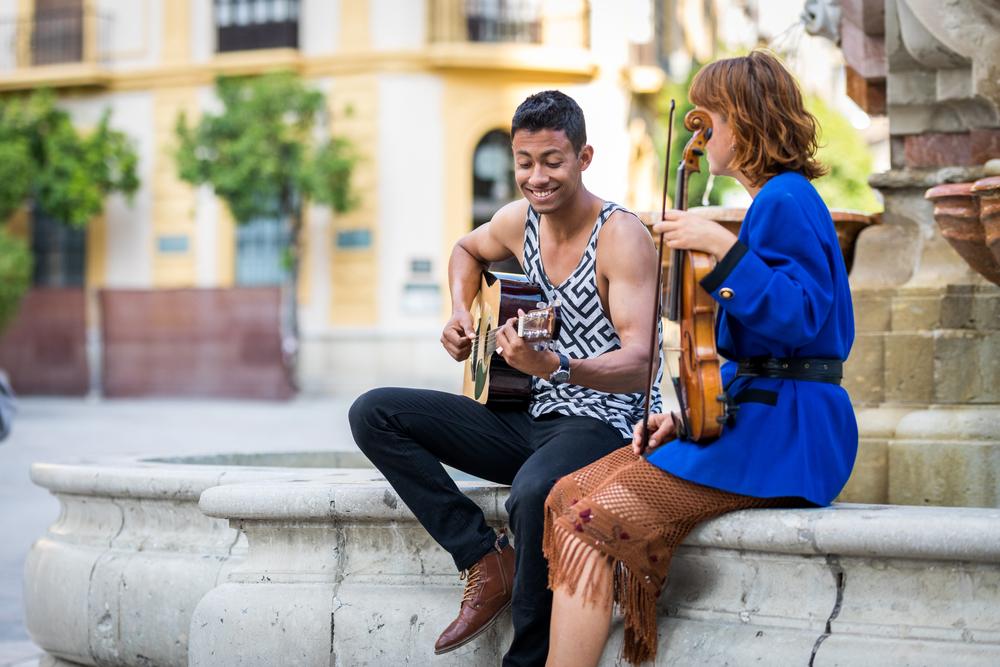Building a vibrant EU-LAC people-to-people partnership

Tap into the potential of EU-LAC people-to-people exchanges
People are at the centre of the EU-LAC partnership, based on strong and diverse social and cultural links. Both regions can build on the potential of their diverse cultural expressions, heritage, vibrant creative industries for sustainable development and intercultural dialogue, well shown by the 2022 worldwide initiatives EULAT4Culture.
Follow the link to watch an EULAT4Culture teaser video.
People to people and international cultural relations contribute to the EU-LAC partnership in a unique way as they:
- Offer greater connectivity, better mutual understanding, and deeper relationships,
- Are mutually beneficial, and help through a vibrant dialogue achieving more resilient societies,
- Promote co-creation and co-responsibility for the benefit of LAC and the EU people,
- Promote shared values such as human rights, solidarity and respect of diversity.
The EU supports different cultural relations projects including:
- The support and promotion of exchanges between EU and LAC young artists,
- Facilitate the joint work of creative industries.
International cultural relations in action
Through international cultural relations, EU and LAC work to maximise the potential of their diverse cultural expressions, heritage, vibrant creative industries for sustainable development and intercultural dialogue.
A great example was the 2023 edition of the International Book Fair in Guadalajara (Mexico), the largest book fair in Latin America and in the Spanish speaking world, in which the EU participated as a Guest of Honour, with more than 70 authors from its 27 Member States and a multi-disciplinary cultural programme.
Youth at the core of the EU-LAC partnership
Fostering closer connections between younger generations through cultural initiatives and mobility programmes is a key for the future of EU-LAC relations. In line with the first-ever EU Youth Action Plan, the EU aims at promoting meaningful youth participation and empowerment for sustainable development, equality and peace.
Programmes such as Erasmus+ and Horizon Europe, and in particular the Marie Skłodowska-Curie Actions provide a framework for researchers and students mobility, which is highly popular amongst students and researchers in many LAC countries (here the detailed the Erasmus+ statistics and factsheets).
These programmes also provide a framework for research, innovation and knowledge transfer, in line with the “Research Mobility” pillar under EU-CELAC 2021-2023 Strategic Roadmap and Action Plan on Science, Technology and Innovation. Through initiatives such as Euraxess, the EU supports developing capacity and retaining knowledge in LAC countries, by creating stronger links among relevant stakeholders in the region. Follow the link to learn more about Euraxess - The leading portal for the research community.
Civil Society relationships and Parliamentary Diplomacy: Assets for an enhanced EU-LAC dialogue
Parliamentary diplomacy is a key component of the bi-regional relationship, including through the Euro-Latin American Parliamentary Assembly (EuroLat). The EU and LAC benefit from a dense network of and intense exchanges among civil society and think tanks, including through the work of the EU-LAC Foundation. It has established itself as a relevant actor, building bridges and transforming the nature of the regional association, strengthening and promoting the active participation of the civil society and connecting its demands with political representatives at the highest level.





